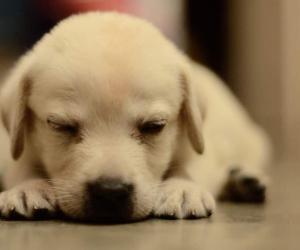Can Cats Get IBS? 10 Things You Need to Know
Irritable bowel syndrome is a gastrointestinal issue that causes pain and distress. It’s common in humans, but can cats get IBS? Here are 10 things you need to know about IBS in cats.
1. Can Cats Get IBS?
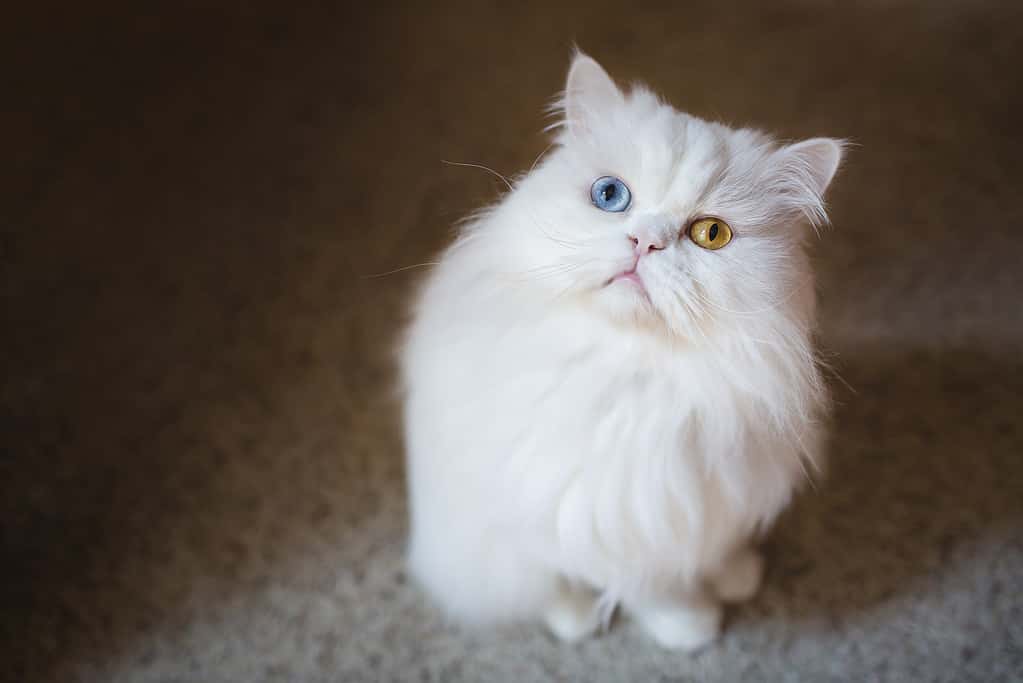
Cats can develop IBS and a number of other gastrointestinal issues.
©dianewphoto/iStock via Getty Images
Yes, cats can get IBS, but it’s not well understood.
IBS is generally considered a bowel sensitivity. It produces a range of symptoms chiefly including a sudden onset of severe diarrhea, constipation, and pain. Many other illnesses have the same symptoms, so it’s difficult to diagnose and treat. Although IBS is most common in middle-aged and older cats, kittens and youngsters may develop it too.
IBS occurs for several reasons, which we’ll look at in detail later, but the main causes for IBS in cats are stressors, food intolerance or allergy, or a bowel problem such as an infection or genetic predisposition.
2. Symptoms of IBS in Cats
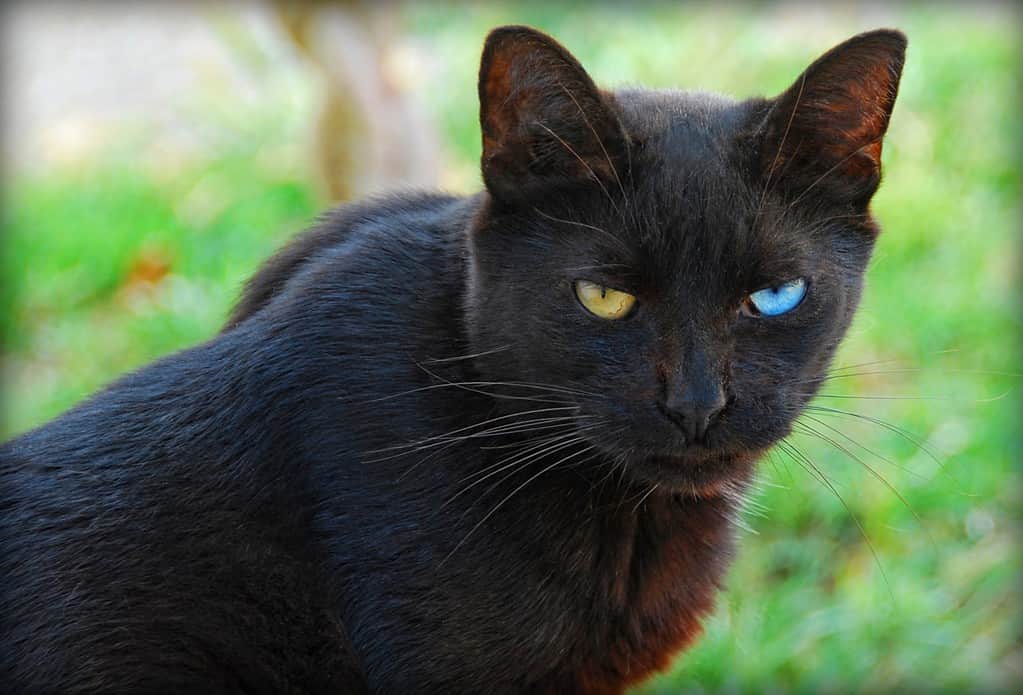
Pain, diarrhoea, and constipation are all signs of IBS in cats.
©Chris Yarzab / CC BY 2.0 - License
IBS creates a wide range of symptoms in cats. Some cats will suffer just one symptom, but others may have a mixture or all of these:
Here are the most common symptoms:
- Diarrhoea
- Constipation
- Pain when pooping
- Bloated abdomen
- Excessive gas
- Painful stomach
- Vomiting
- Pooping around the house
- Lethargy
- Appetite loss
- Weight loss and weight gain
How often these symptoms occur varies between cats. Some experience odd occasions, whereas others may have daily symptoms.
3. Causes of IBS in Cats
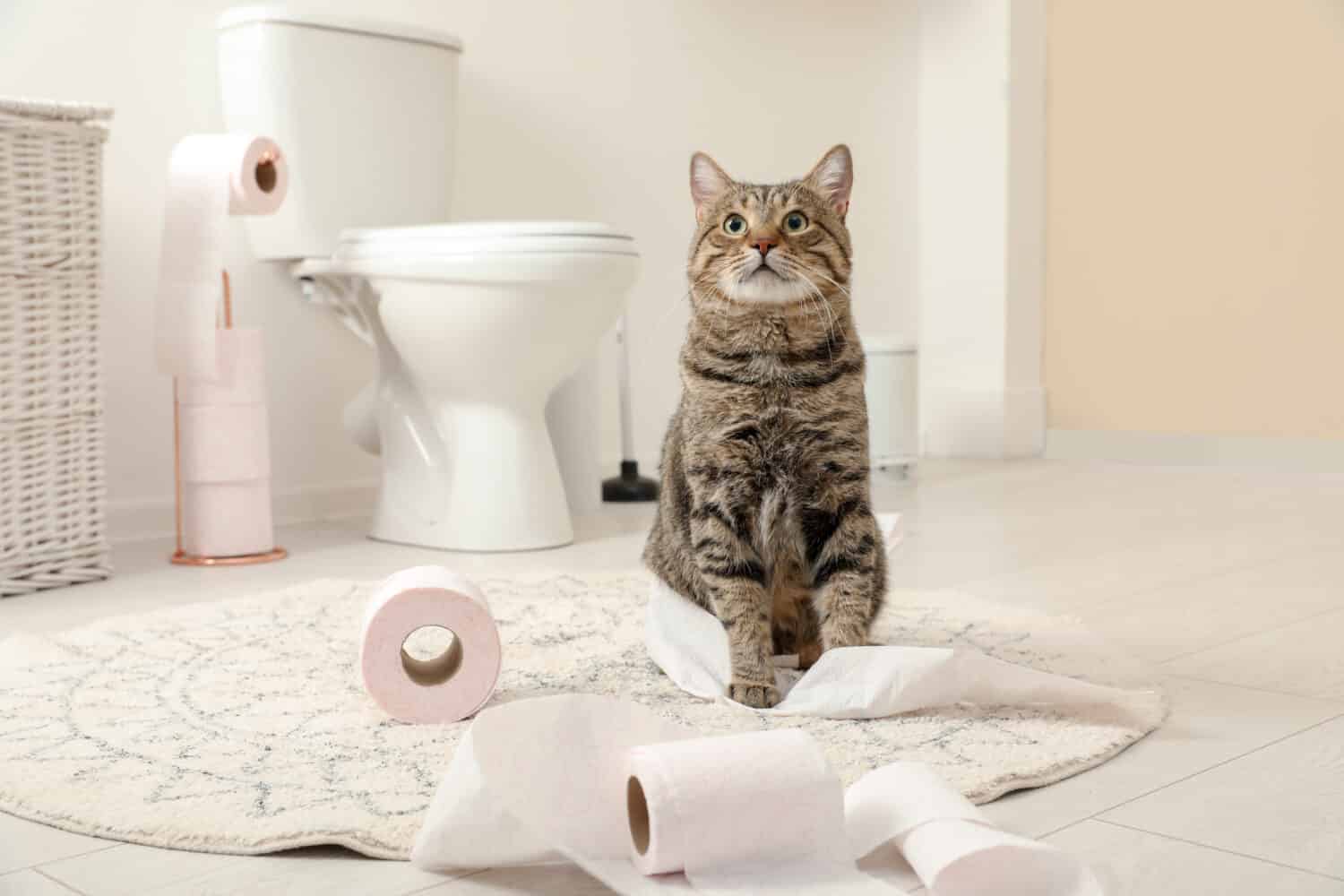
Stress and unsuitable foods are the two main reasons for IBS.
©New Africa/Shutterstock.com
Veterinarians and researchers aren’t sure what causes IBS in cats and kittens. In many cases, the exact cause is difficult to uncover, but several identified causes include stress and food intolerance.
Food Intolerance:
Just like humans, some cats are intolerant or allergic to certain foods. Grain is a common culprit alongside dairy. Lack of dietary fiber may also cause IBS. Food intolerances require a try-and-rule-out approach to identify which food might cause IBS.
Stress:
Stress affects cats in so many different forms it’s impossible to list them all, but here are some of the top stressors:
- Injury or illness
- Separation anxiety
- Loud noises e.g. fireworks
- Presence of another animal e.g. a new cat in the home or a neighbour’s dog
- Presence of strangers in the house
- Furniture rearranging
- Traveling and boarding
- Changes to cat’s routine
Other symptoms of stress in cats include urinating in odd places, including in the house, and excessive grooming. It’s not uncommon for stressed cats to pull out their fur, particularly on their back legs. Stress-induced cystitis is another stressed-out cat sign.
Infection or colon abnormality
Sometimes an infection or a genetic abnormality causes IBS in cats. Research into bacterial infections or parasites is ongoing. In many cases, a veterinarian can order tests to rule out this cause of IBS in cats.
4. Can Worms Cause IBS In Cats?
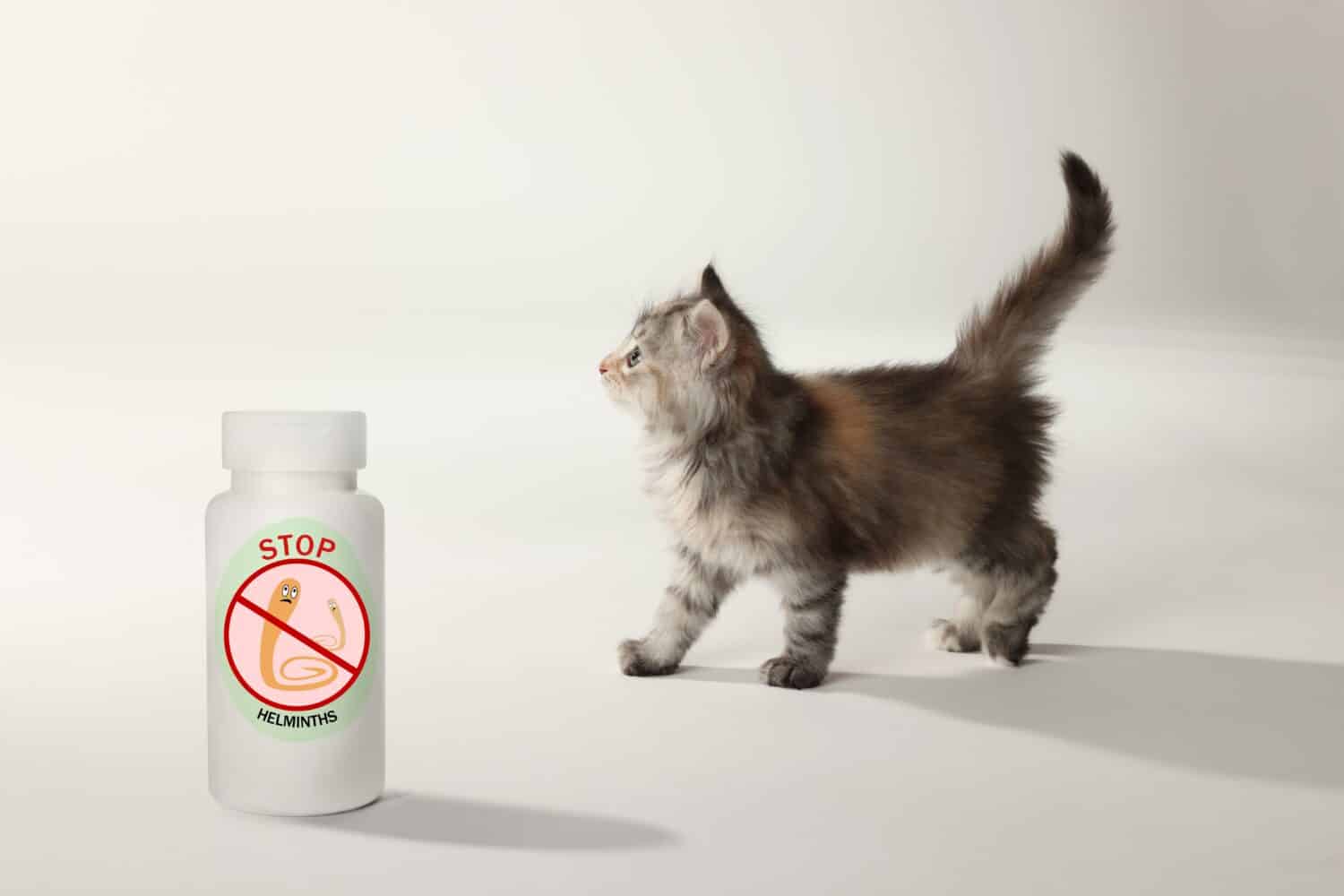
Intestinal parasites may cause gastrointestinal disorders.
©New Africa/Shutterstock.com
Worms, such as tapeworms and roundworms, are common cat parasites. Experts think that bacterial infections and potentially parasitic infections may cause or trigger IBS in cats.
However, even if worms are not the cause, it’s important to provide your cat with effective anti-parasite treatment. Parasitic infections not only make your cat unwell, but some transfer to humans.
5. How It’s Diagnosed
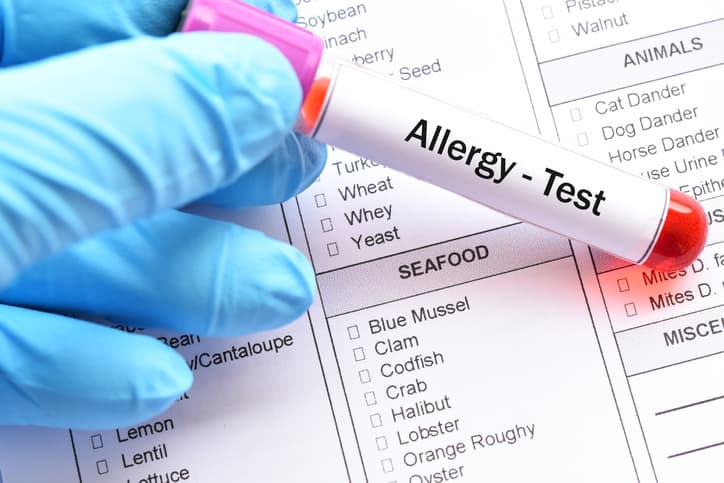
A veterinarian can run tests to determine what might cause IBS in cats.
©jarun011/iStock via Getty Images
Your veterinarian will physically examine your cat by feeling its stomach and ask you about symptoms.
They’ll likely ask about recent stressors, such as a house move, or a new cat in the house for example, and ask if you’ve recently changed your cat’s diet. Based on your answers, a veterinarian may recommend further tests to rule out disease or injury with similar symptoms. Tests may include blood chemistry, fecal exam, abdominal x-rays, or a colonoscopy.
Often IBS is diagnosed by ruling out another disease, so it may take some time to arrive at a verdict.
6. Difference Between IBS and IBD In Cats
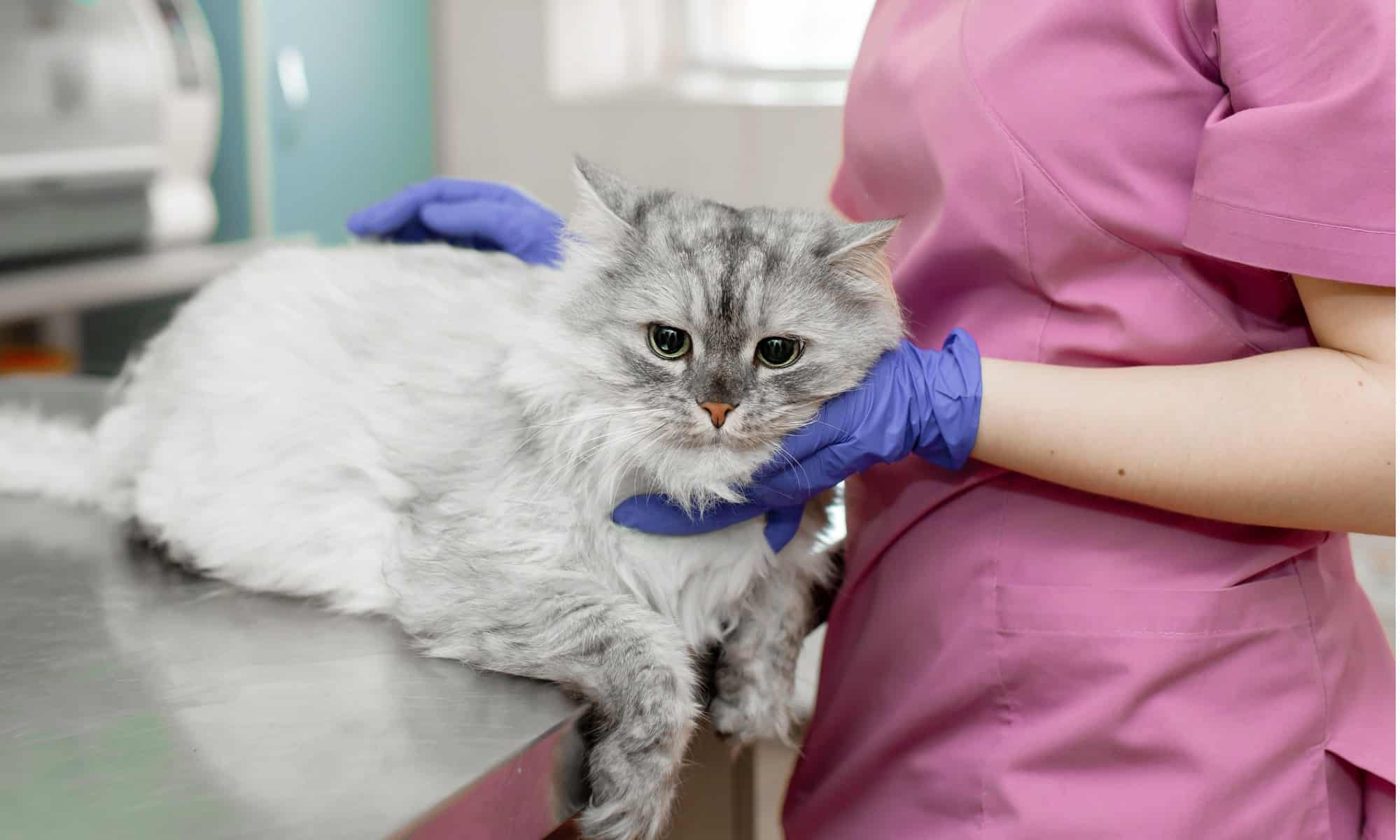
IBS and IBD are different illnesses. A veterinarian can help determine the correct diagnosis.
©iStock.com/Kateryna Kukota
Irritable bowel disease (IBD) differs from IBS. It’s a long-term, chronic disease that inflames the intestinal tract.
IBD is often caused by intolerances or allergies, genetics, or diseases rather than stressors. Diagnosis of IBS requires stomach biopsies and/or an endoscopy or laparotomy to search for thickened intestinal walls. Cats with IBS generally don’t have permanent symptoms or thickening, but acute, short-term flare-ups.
7. IBS in Cats: Treatment
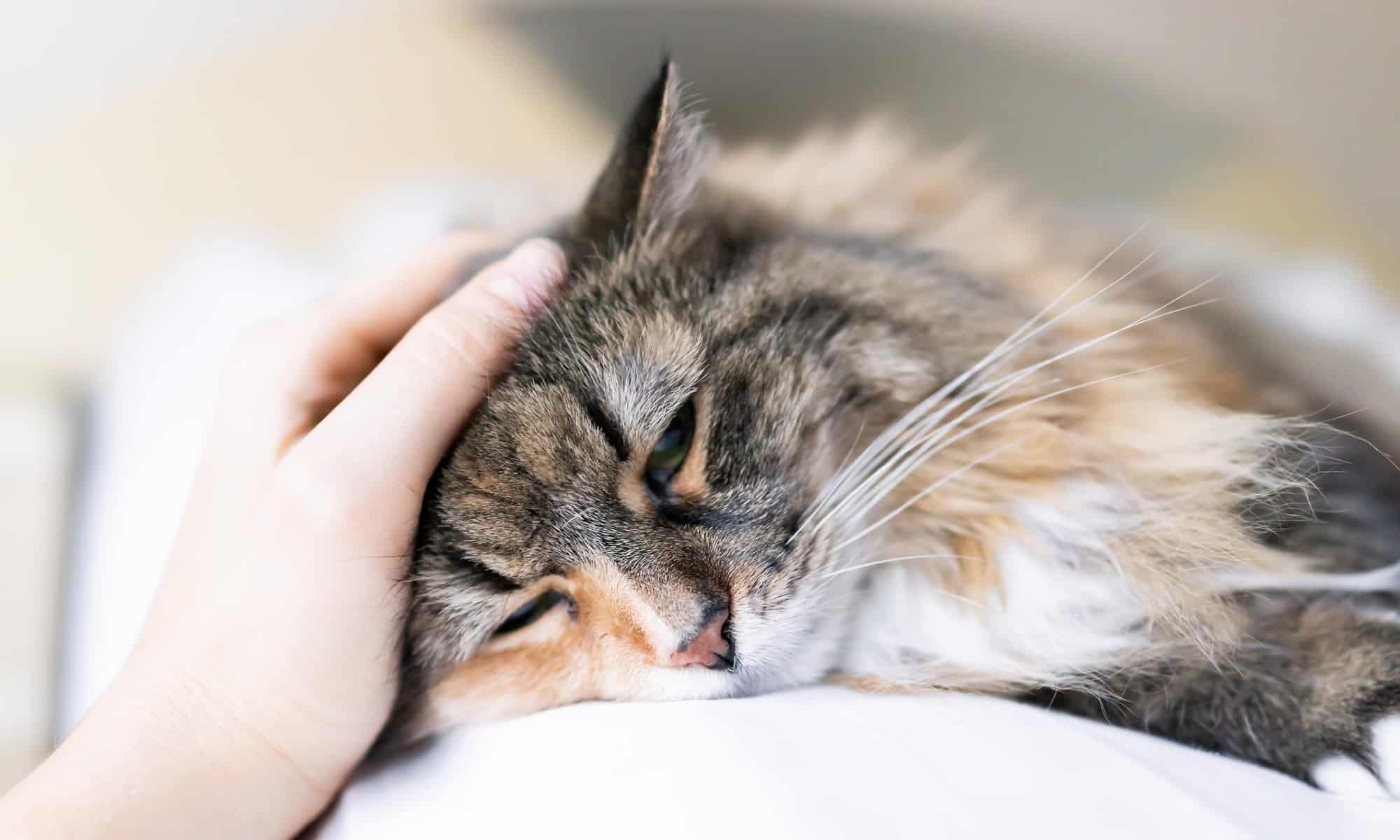
Treatment includes removing stress and trying specialist diets.
©iStock.com/krblokhin
IBS can’t be cured, so treatment centers around relieving symptoms of diarrhoea and pain and identifying the triggers. Longer-term treatment involves managing IBS triggers. Stress removal, food intolerance trials, and food management are long-term treatments for cats with IBS.
Dietary Changes
An elimination diet will help identify what, if any, food is causing your cat’s IBS.
Grain-free or hypoallergenic food is often the first step in eliminating IBS. During this testing period, cats mustn’t eat treats or receive food from neighbors. If IBS does not clear up with the first dietary change, another dietary change is on the cards. Each change is carried out for several weeks to give your cat’s digestive tract time to respond.
Hypoallergenic food that’s high in protein and dietary fiber is best for cats with IBS. Grains, fillers, and fatty food may provoke it. Bear in mind that as your cat ages, it may develop allergies.
Stress Management
Long-term stress management may help IBS management. Identifying the point of stress is essential, so it can be eliminated or minimized. Each situation is different, but it’s worth considering changes in sights, sounds, and smells. If owners are away from the house for long periods consider background radio noise, interactive food toys, or a cat sitter that pops in to check your cat is well.
If a new cat in the house is proving stressful, ensure they have separate litter trays and food in different rooms. Somewhere quiet and bother-free to sleep is a calm cat essential.
Plug-in pheromone diffusers may help cats de-stress, but if stress is impossible to remove, a vet may prescribe anti-anxiety medication.
Medical Treatment
Your veterinarian may prescribe medications that treat diarrhoea such as antispasmodics or stool softeners to help treat cat IBS. Some evidence suggests that pre and probiotics may also help maintain a cat’s gastrointestinal tract.
Severe cases may require rehydration medication or antibiotics.
8. What To Feed A Cat With IBS
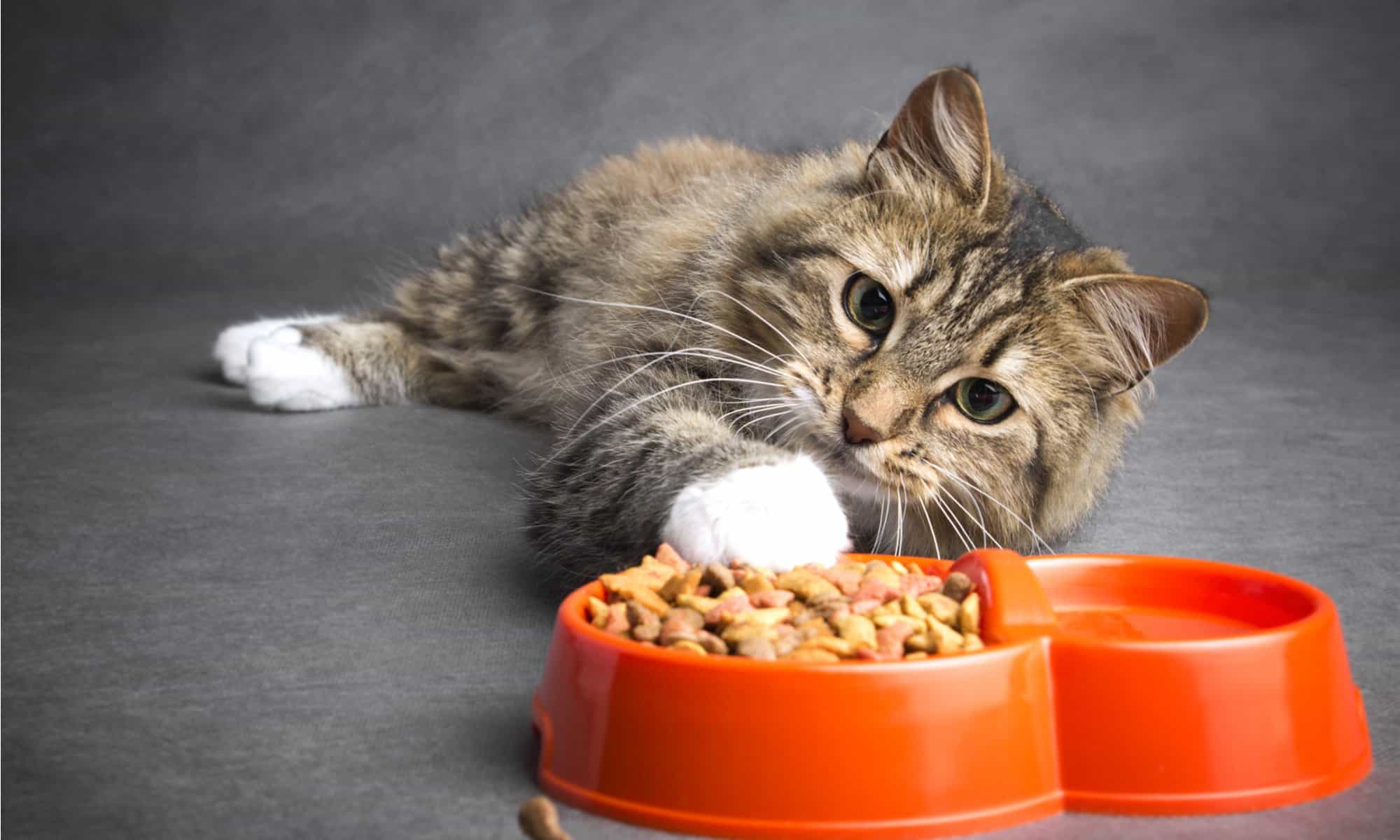
A grain free diet is often the first step towards treating IBS in cats.
©fantom_rd/Shutterstock.com
Because dietary intolerance or allergy is one of the main causes, their diet is of utmost importance.
The best food for an IBS cat is something they’re not intolerant to, but this takes time and patience to discover. If a cat’s IBS is stress-related then good quality, easy-to-digest, low-fat but high-fiber food is best. Lots of brands offer IBS cat food. Speak to your veterinarian for their recommendations.
9. Exercise For Your Cat Is Important
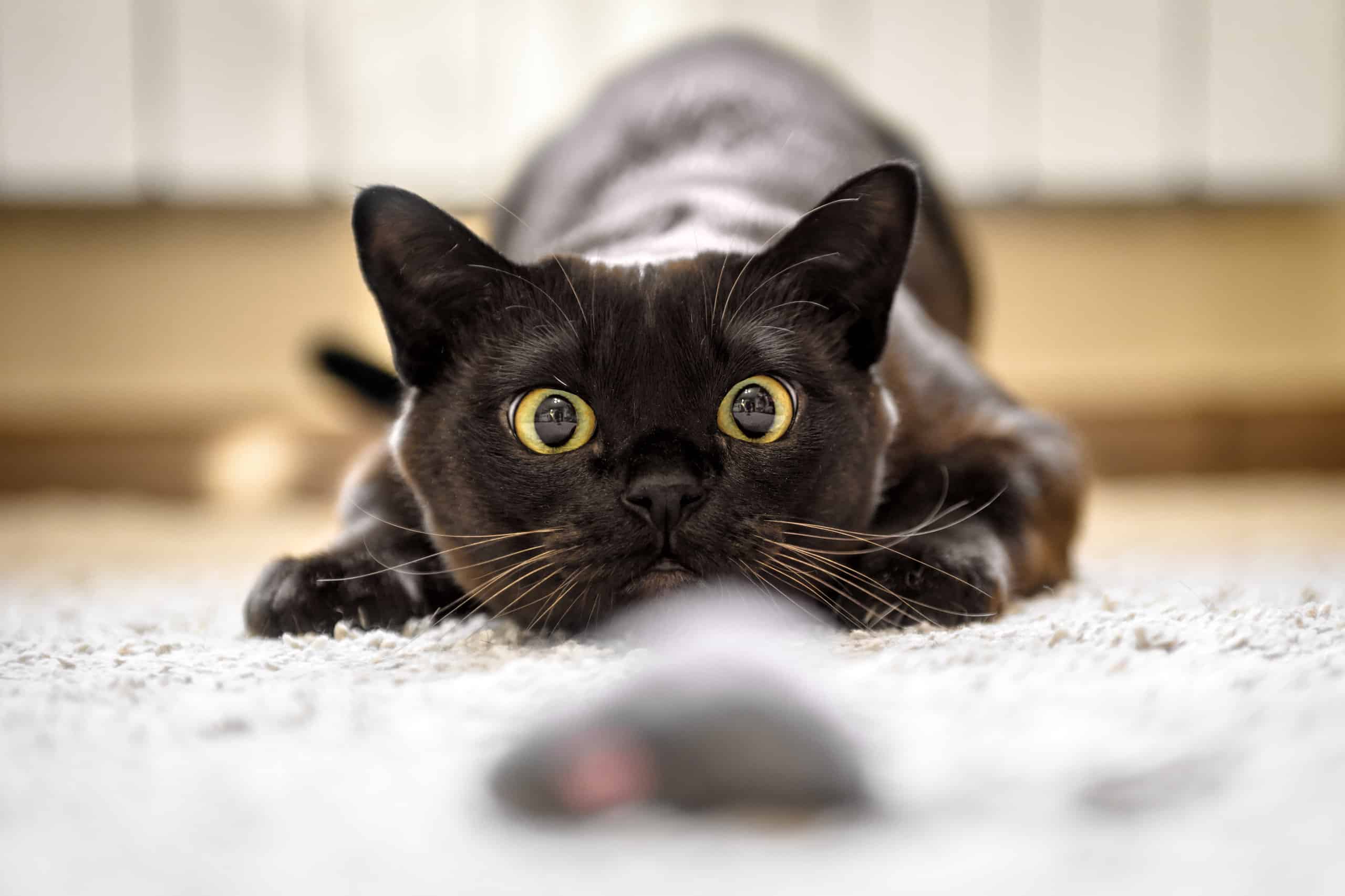
Play with your cat to improve their overall health and stress levels.
©Viacheslav Lopatin/Shutterstock.com
Exercise is important because it improves blood flow and colon function. It also energizes their brain and provides mental stimulation. Indoor cats are prone to lack of exercise, so encourage play with exciting new cat toys, such as a laser pointer, and lots of human interaction.
Stress is relieved through exercise. If your cat’s IBS is stress-related, packing in plenty of movement can help them cope.
10. How Long Can a Cat with IBS Live?
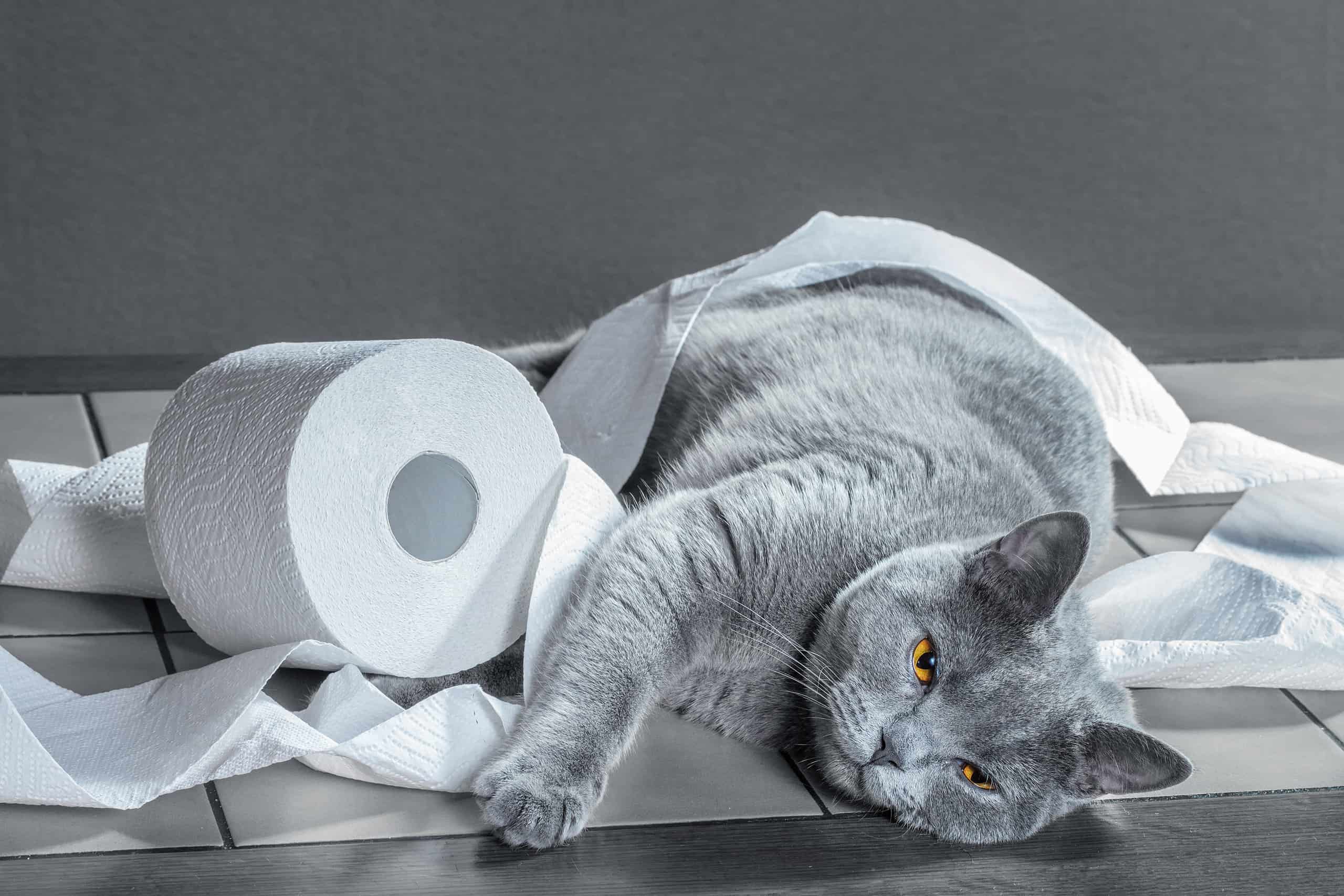
Cats with IBS can live long lives with the right treatment.
©g215/Shutterstock.com
Although IBS in cats is uncomfortable and sometimes distressing it should not affect their life expectancy when it is properly managed. Once the root cause of your cat’s IBS is uncovered, and treated accordingly, there’s no reason why they shouldn’t enjoy a high quality of life.
However, ignored or poorly managed IBS causes issues like the inability to absorb vitamins and minerals, poor coat condition, and lethargy. It’s also really important to rule out diseases like IBD because long term it can cause cancers.
IBS is manageable if it’s investigated thoroughly and appropriate treatments are applied. Ask your veterinarian for help and don’t give up. Many cat IBS cases are resolved through patience and the willingness to stick to a new regime.
The photo featured at the top of this post is © Burkhardt - Mayer - Fotografie GbR/iStock via Getty Images



